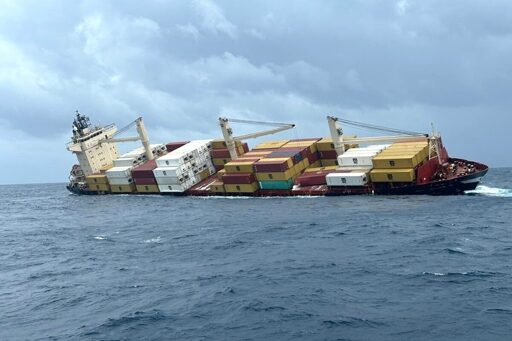Sri Lankan authorities, locals and environmentalists say they’re deeply concerned about the possible impacts on the country’s marine ecosystem and coastal communities from the sinking of a container ship off the southern coast of India in May, Mongabay contributor Malaka Rodrigo reported in June. The Liberia-flagged ship MSC Elsa 3 sank on May 25 about 38 nautical miles (70 kilometers) off the coast of India’s Kerala state, reportedly due to ballast system failure. Indian authorities said they were able to contain the spill of the more than 450 metric tons of fuel oil on board. But among the cargo ship’s 640 containers were hazardous materials, including calcium carbide, used in steelmaking, which reacts violently with water to form flammable gases and poses a risk to the local marine ecosystem. The cargo also contained nurdles, small pellets used in plastic manufacturing, that soon started appearing on the beaches of India and Sri Lanka. At the time of Rodrigo’s reporting, nurdles had been spotted on Sri Lanka’s northern shores. Since then, more have washed up on the southern shores, near Colombo, Sri Lanka’s capital. Padma Abeykoon, additional secretary at Sri Lanka’s environment ministry, told Rodrigo that Indian authorities initially alerted the Sri Lankan government about the plastic debris drifting toward its shores because of ocean currents. The pellets arrived on the coast of Mannar, a town in northern Sri Lanka, within a day of the ship’s sinking. Plastic nurdles washed ashore on Sri Lanka’s northern coast. Image courtesy of the Marine Environmental…This article was originally published on Mongabay
From Conservation news via this RSS feed


